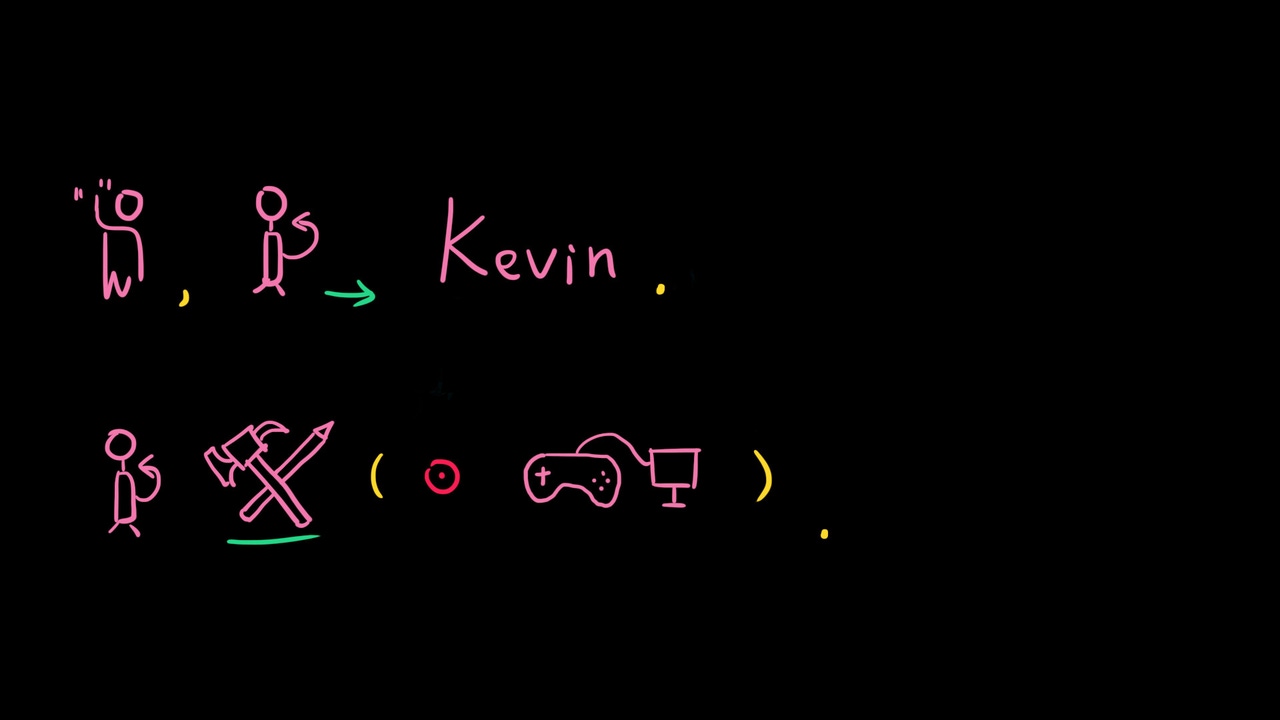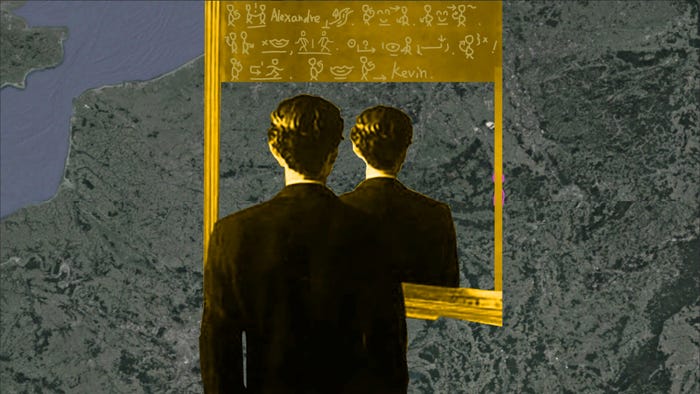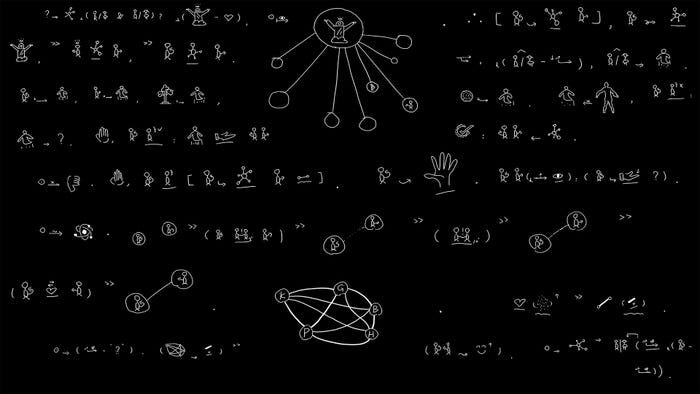Trending
Opinion: How will Project 2025 impact game developers?
The Heritage Foundation's manifesto for the possible next administration could do great harm to many, including large portions of the game development community.

Developer Kevin Du talks about exploring human connection and understanding through weaving a language and tasking players with figuring out what is being said.

The IGF (Independent Games Festival) aims to encourage innovation in game development and to recognize independent game developers advancing the medium. Every year, Game Developer sits down with the finalists for the IGF ahead of GDC to explore the themes, design decisions, and tools behind each entry. Game Developer and GDC are sibling organizations under Informa Tech.
Kevin(1997-2077) drops players in a massive field of text and imagery, tasking them with discovering what is said with (seemingly) very little to work with.
Kevin Du, the game’s creator, spoke with Game Developer about creating a game about the question of who the developer is, the thoughts that went into exploring the power and humanity of language through game design, and what drew them to create such a challenging experience in understanding what someone is trying to tell you.
Who are you, and what was your role in developing Kevin(1997-2077)?
I’m Kevin Du, the solo developer of this game; in other words, the author of the game.
What's your background in making games?
I studied architecture at Soochow University, China and game development at Abertay University, Scotland. I live in Dundee, Scotland now.

Images via Kevin Du
How did you come up with the concept for Kevin(1997-2077)?
I made a few prototypes which are around the concepts of language, body, boundary and the potential for understanding others in half a year. Eventually, I felt satisfied that it was completely about Kevin.
What development tools were used to build your game?
Unity and Adobe Photoshop.
Kevin(1997-2077) sees players following Kevin's life through deciphering the language of the notes he has left for them. What interested you in exploring language, personal stories, and communication with this game?
I’m interested in the diversity and richness of cultures and religions. Language is likely the most important carrier of knowledge and an undeniable characteristic of humanity. I hope my entire life’s work can contribute to bringing humanity together so language would be an explorable material.
Usually, I start a work with a question. Because Kevin(1997-2077) is my first game, my questions hardly could not be who I am, what the important things are in my life, and what I want my future would be.

Images via Kevin Du
The game features a dense text for players to work through that can be extremely overwhelming at first. What interested you in hitting players with such a daunting task right from the start?
When I came to Scotland for the first time, my English was bad and I was immersed in the Scottish accent. I almost could not understand anything, but I certainly knew the way by which they talked made complete sense. It was challenging but fun.
Normally, games are designed with an ascending difficulty curve but I prefer the reversed one. Games unquestionably create experiences, however, I hope that a game can shape a quality, which is a thing a player can gain or improve in real life via playing the game. In the case of Kevin(1997-2077), the quality I want to shape is honesty. I assume the reversed difficulty curve makes players feel real and face reality. I am afraid we have to make efforts to improve our qualities.
What thoughts went into using visuals and images to help players start to piece things together? What ideas went into the "tools" players would use to start piecing things together?
In the previous prototype, the language used abstract characters like common languages. The problem was that it was too abstract, so the player had to use a dictionary. It was not elegant and far away from what I wanted. I use photos of cities and paintings because I’d love to point out that the game is not about a fictional world.
About the notation tool, I love reading while working with a pencil. For me, reading is an interactive activity.
How did you come up with the language that Kevin uses? How did you design an entire language for players to decipher? How did you design it to allow for it to be deciphered?
When we use a language, I assume, a kind of understanding of the world has been embedded in the language. I wanted to talk about myself and my understanding of the world as clearly and accurately as I possibly could. I supposed that I had to design the language first.
I designed the language by using it. As I was designing it, I tried to figure out what my understanding of myself and the world was, and that understanding was solidified in the form of language.

Images via Kevin Du
Kevin (1997-2077) doesn't feature any in-game translation system once you figure things out, requiring players take down notes by hand as they work to figure out what is being said. What appealed to you about creating your language puzzle in this way? What do you feel players take away from this challenging, but more hands-on, puzzle experience?
The language is, kind of, a private language. I’m eager to be understood, but I didn’t invite players to do so.
Actually, what does it mean when I say “I understand a person”? Is it possible, or what is the boundary we cross in which I can say “I understood them”?
In my opinion, saying “I want to understand them and I’m trying to understand them” is better than “I understood them.” In addition, the language is untranslatable due to the embedded understanding in it.
I hope my player can be a more honest person by playing the game or realize that honesty is such a great quality of a human being.
What do you hope players bring to their work in understanding Kevin(1997-2077)?
On the earth side, I hope players focus on the big picture—the main ideas I want to express, and the structure rather than language details. I discouraged players from getting into those details by using a restricted camera size which many players would think was inconvenient.
On the earth-back side, the language is the main thing and the player has to understand me by their understanding, which would be through their culture, languages they already know, and the imagination of Kevin. When they discuss it with other players if they have chances, they would know how much they, as a person, are different from others.
Meanwhile, a channel is always open in the game to talk with me if they want. I encourage and am grateful that players are willing to do so.
What do you hope players take away from their experience with Kevin(1997-2077)?
I’m eager to be understood and at the same time, I’m keen on understanding others. The game is not a thing that makes the player feels fulfillment through solving puzzles, but a bridge or connection that brings me and players, as well as players and other players, together.
The experience is not only about a character in a game world but also about a real person who is open to talking and making friends with you, my players.
You May Also Like